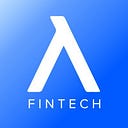Explaining Sharding: A Game Changer for Blockchain
by Marvin Dumont
Apollo’s groundbreaking innovation, sharding, is finally here. (See important update on sharding release.)
Sharding is a game changer for blockchain, solving long-term challenges of bloat and data overload.
On Mar. 28, John McAfee said on Twitter:
One of the biggest issues with current cryptos is blockchain bloat. Apollo is one of the only coins to solve this problem. Their release of Sharding will make it one of the most advanced coins on the market and one of the only options viable long term.
The first shard will execute at block 2,250,000. After the first shard occurs, the protocol will proliferate through Apollo network.
The foundation is making history with fully-functional sharding protocol, becoming one of first crypto projects to launch the feature.
Bloat brings sustainability concerns.
Over time, there will be billions of blocks (or more) on-chain. Although each block adds a tiny amount of data, the accumulated info will eventually grow to astronomical sizes.
Sharding splits the ledger and database into time-based slices, according to Bitfi. This split will be made on each node in the consensus. These slices can be thought of as block-height based; each node has precise information on the split.
According to Bitfi:
Each shard will be completed after a certain number of blocks and some quantity of blocks are used for verification. Information is added to each shard that allows blockchain operations to happen without queries to the full ledger (one of the main benefits of sharding).
Blockchain operations are optimized to run on code from the last slice of the ledger record. Each slice contains reliable data, and this is ensured by signing its summary table.
This makes downloading the full blockchain unnecessary. You get the latest slice of the ledger — and start processing. Previous slices can be accessed on demand — from last block to first.
The result is remarkable speed and scalability.
Blockchain is exciting innovation. Here are a few questions to consider:
- If nothing is ever deleted on a chain and blocks grow to trillions, can a network continue to function?
- Can a chain get overloaded with too much data, resulting in slower speed or compromised functionality?
- Will trillions of blocks make it difficult for users to download an entire chain in new wallet?
- Files are stored permanently on blockchain. What could it look like decades or centuries from now?
Here’s more info on Apollo sharding.
Sharding: A Solution To Blockchain Bloat
Sharding Will Launch April 1
Apollo (APL) all-in-one privacy currency combines features of mainstream cryptocurrencies in a truly private and unregulatable platform. With two-second block speed, APL is one of the fastest cryptos on Earth. The privacy platform lets “Apollonauts” transact and send data anonymously via Encrypted Messaging, Private Ledger, Decentralized Exchange, IP Masking 2.0 and Coin Mixing. Learn more at www.apollocurrency.com
